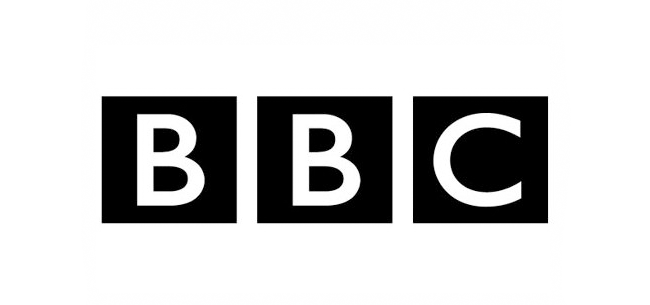BFI celebrates 100th anniversary of the BBC with rare screening of Eurovision 1962
As part of its ‘100 BBC TV Gamechangers‘ series, on Saturday, the British Film Institiute (BFI) aired two sessions dedicated to the Eurovision Song Contest, including a purposely-restored screening of the 1962 Contest, which originally aired on 18th March that year from the Villa Louvigny, Luxembourg City.
According to the BFI’s Robin Baker, the series aims to screen in-depth, remastered and never-before-seen material from shows that “changed our perception of the limits of television”.
Session 1 was hosted by British Eurovision expert and author of the Songs for Europe series Gordon Roxburgh. The BBC has the 1960, 1961 and 1963 Contests in its vaults, the first and last of which were held in London at the Royal Festival Hall and BBC Television Centre respectively. However, during lockdown, Roxburgh spotted a copy reel of the 1962 Contest on eBay held by an American seller, which he bought, and then had restored by a contact at the BBC, who suggested he screen it to the public. This just leaves the 1964 Contest from Tivoli, Copenhagen, the “Holy Grail for Eurovision archivists” in Roxburgh’s words, lost to the vaults of time for now.
The recording contained commentary from British radio host David Jacobs, and, while most of the footage was expertly restored for a cinema-quality screening, there were moments when it became clear how much 60 years had taken its toil on the domestically-held film. The 250-strong audience, mostly made up of British Eurofans and OGAE members, were particularly amused by a moment during the performance of Katinka by Dutch crooner duo De Spelbrekers, when the contrast dialled up so high that all that could be seen was two sets of floating white shirts and teeth.
Another moment of hilarity occured during 80 seconds of black screen, due to a power cut that hit the concert hall just before Norway’s performance, which, as Jacobs pointed out, ironically translated to “Come Sun, Come Rain”. The sound also cut out slightly during the first performance of Isabelle Aubret’s winning entry for France, Un premier amour, as well as during the interval act, a bizarre comedy-music performance from French clown Achille Zavatta, who, at one point, licked a soprano saxophone before choking on the reed and discarding his shoes in a plant pot (yes, strange interval acts have always existed at Eurovision).
In a contest where each national jury only scored their top three performances, giving 3 points for first, 2 for second and 1 for third, France won resoundingly with 26 points, bagging 5 out of 16 top marks. This was way ahead of Monaco’s François Deguelt, who finished second with 13 points for Dis rien, and Luxembourg’s Camillo Felgen, who finished third with 11 points for Petit bonhomme.
Despite the Contest being so distant in the past, the general atmosphere in the room was akin to a group-viewing of any Contest that’s played on “#EurovisionAgain”, with applause for points, especially for the UK and already-grounded fan favourites such as Finland’s playful Tipi-tii and Sweden’s Sol och vår. In a reminder of some of the era’s sensibilities, the chorus of this Schlager banger translates to: “When it’s sun and spring and you’re nineteen years old / You understand so little / And all the little girls should be locked up then / When winter turns to sun and spring”. Indeed, the session ended with an appearance from Rob Holley, current Eurovision Head of Content and creator of #EurovisionAgain.
Session 2 was titled “A Eurovision Extravaganza: The Changing Face of Eurovision”, the first part of which consisted of a panel discussion between Roxburgh, Head of Commissioning for Eurovision 2023 Rachel Ashdown and Stephanie De Sykes. De Sykes wrote Co-Co’s 1978 UK entry The Bad Old Days, which came 11th with 61 points (at the time, the UK’s worst result), as well as Prima Donna’s Love Enough for Two, which came third in 1980 in The Hague. Much of the British audience also knew her as a singer in her own right, thanks to her No.2 hit from 1974, Born With a Smile on My Face.
She discussed her many attempts to qualify from A Song For Europe, the BBC’s long-running national final format, and the difference in experience going to a much smaller Eurovision Song Contest at the time. She mused that, with some excpetions, a certain genre of song was expected at the Contest, no songwriter was sending their best material to Eurovision, and, paradoxically, that a bad result could “kill your career”. “To some extent, you had to tap into the Boom Bang-a-bang, playful nature of Eurovision at the time”, she mentioned. She also quipped that she much preferred the 1980 Contest in The Hague to 1978 in Paris because “I got the impression that the French don’t really like us!”
Meanwhile, Ashdown tried her best not to give away too much information to expectant British fans, engrossed in hype for the 2023 Contest in Liverpool, which will be the first in the UK for 25 years, and the fourth the BBC will have hosted on behalf of another competing nation. Earlier this month, the BBC signed a Memorandum of Cooperation with Ukrainian broadcaster Suspilne to deliver the Contest while Ukraine can’t host due to the ongoing war in the country.
She said that the aim of the show will be to “do Ukraine proud whilst also showing off the music and culture the UK has to offer”. Another detail mentioned was that the song and artist representing the UK at Junior Eurovision 2022, taking place on 11th December in Yerevan, will be revealed “very soon”.
The second part of this session consisted of a “clip show”, featuring more archive footage from vaults at the BFI, the BBC and independent contributors, with a mixture of clips on film and domestic VHS tape recordings, covering lost performances, rehearsal footage, trailers, official press photos, promotional material and rogue B-roll clips of audience members falling asleep.
Given the link to the BBC’s 1ooth anniversary, many of the clips concerned the 1977 and 1979 editions of A Song for Europe, which were both pulled from broadcast at the last minute due to industrial action, and have never surfaced since. Many of these clips were taken from other flagship BBC shows, mostly talk shows hosted by Ronnie Corbert and Michael Parkinson, and one of soul group The Foundations performing their third-placed entry from A Song For Europe 1977, Where Were You When I Needed Your Love?, on flagship 70s BBC kids’ show Crakerjack! Many other British household names featured among these former national final hopefuls, including the Nolan Sisters, who came fourth at A Song For Europe 1979 with the fast-paced and expertly-choreographed Harry, my Honolulu Lover.
Other highlights included Terry Wogan’s reaction to Spanish duo Azúcar Moreno’s false start at the 1990 Contest in Zagreb, a rarely-seen clip of one of Olivia Newton-John’s other entries into A Song For Europe 1974, Someday, and a group viewing of Love Love Peace Peace, Måns Zelmerlöw and Petra Mede’s brilliant tribute to the Contest from the 2016 Grand Final interval, to finish.
The BFI truly put on a spectacular afternoon’s viewing, reminding the old and young in the fanbase of just how far Eurovision has come, but not to forget its roots, and learn from the past mistakes and triumphs the Contest has thrown at everyone who’s taken part, to make the next 100 years of ESC even better.
Remember to subscribe to ESCBubble on Facebook, Instagram, TikTok, Twitter and YouTube for more exclusive Eurovision content!

